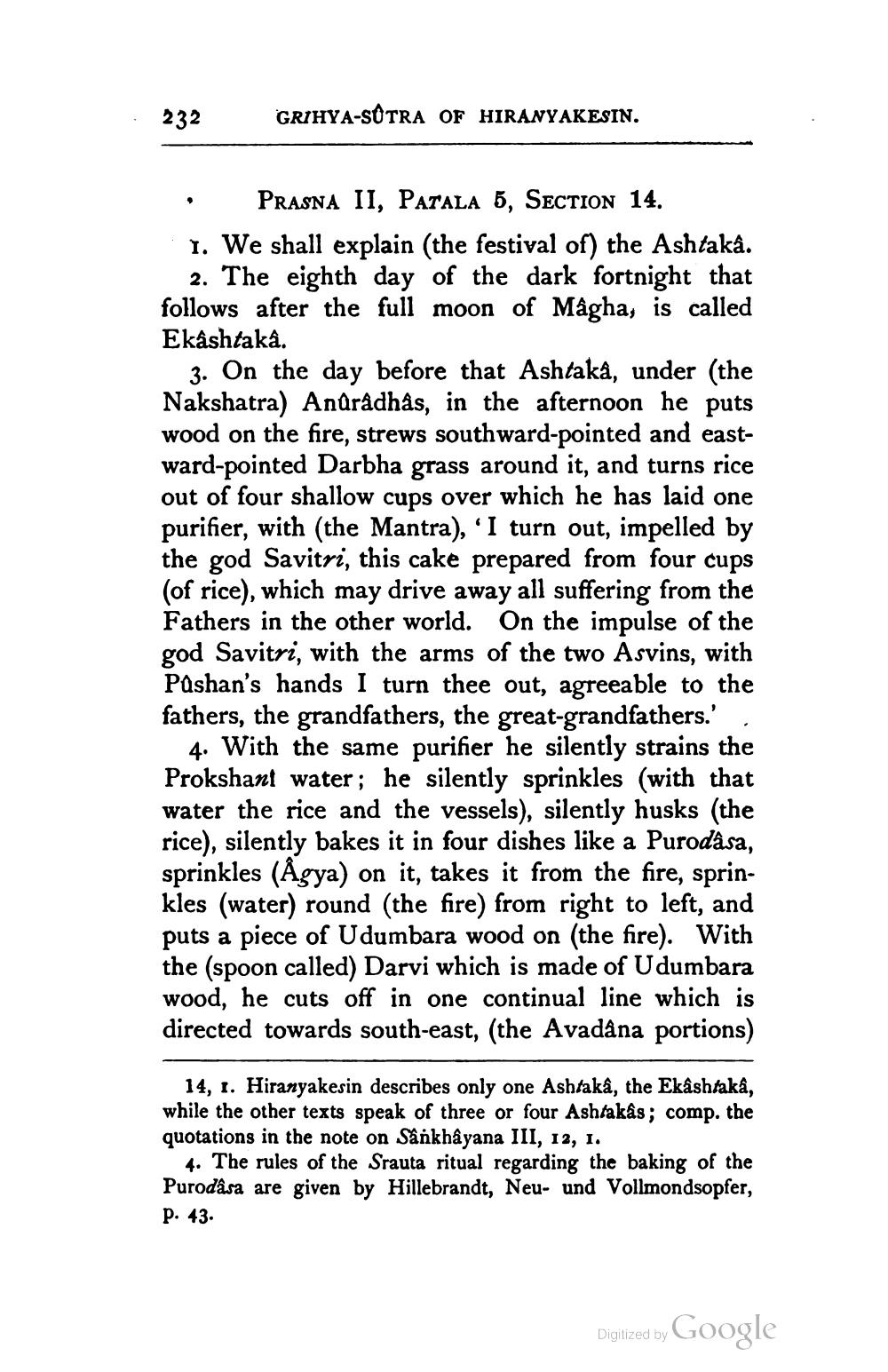________________
232
GRIHYA-SUTRA OF HIRANYAKESIN.
PRASNA II, PATALA 5, SECTION 14.
1. We shall explain (the festival of) the Ashtakâ. 2. The eighth day of the dark fortnight that follows after the full moon of Mâgha, is called Ekâshtakâ.
3. On the day before that Ashtakâ, under (the Nakshatra) Anûrâdhâs, in the afternoon he puts wood on the fire, strews southward-pointed and eastward-pointed Darbha grass around it, and turns rice out of four shallow cups over which he has laid one purifier, with (the Mantra), 'I turn out, impelled by the god Savitri, this cake prepared from four cups (of rice), which may drive away all suffering from the Fathers in the other world. On the impulse of the god Savitri, with the arms of the two Asvins, with Pushan's hands I turn thee out, agreeable to the fathers, the grandfathers, the great-grandfathers.'
4. With the same purifier he silently strains the Prokshant water; he silently sprinkles (with that water the rice and the vessels), silently husks (the rice), silently bakes it in four dishes like a Purodâsa, sprinkles (Âgya) on it, takes it from the fire, sprinkles (water) round (the fire) from right to left, and puts a piece of Udumbara wood on (the fire). With the (spoon called) Darvi which is made of Udumbara wood, he cuts off in one continual line which is directed towards south-east, (the Avadâna portions)
14, 1. Hiranyakesin describes only one Ashtakâ, the Ekâshtakâ, while the other texts speak of three or four Ashtakâs; comp. the quotations in the note on Sankhâyana III, 12, 1.
4. The rules of the Srauta ritual regarding the baking of the Purodâsa are given by Hillebrandt, Neu- und Vollmondsopfer, p. 43.
Digitized by Google




